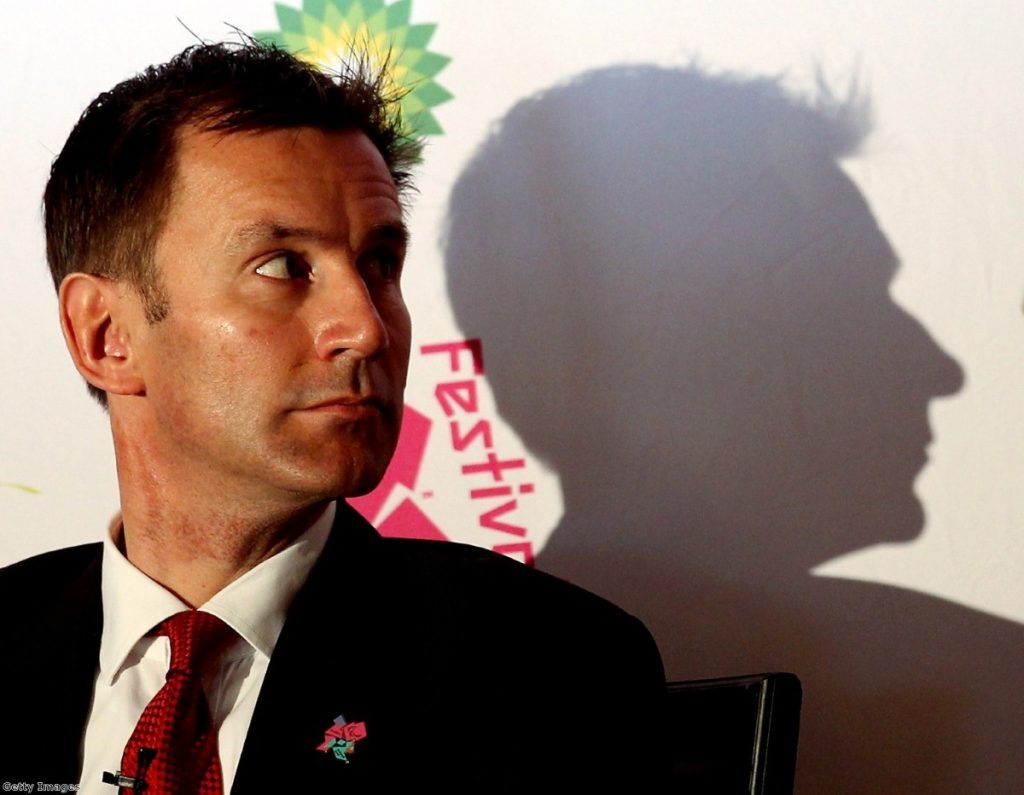Why is Jeremy Hunt appealing against his own powers?
Jeremy Hunt was told to explain an appeal against his own legal powers this morning, after a battle over gay men's right to give blood in Northern Ireland put the health secretary in a bizarre position.
Hunt is legally challenging the idea that he has the right to decide the rules around blood donation in Northern Ireland, in a rare instance of a politician fighting to have less influence over policy.
The legal battle started when a Belfast judge ruled that Northern Ireland health minister Edwin Poots did not have the power to maintain a lifetime ban on gay men giving blood and that it was up to the secretary of state to make the call.
The ban was originally put in place in the 1980s, at the height of the AIDs scare, but was lifted in England, Scotland and Wales in 2011.


The ban contnued in Northern Ireland and is supported by Poots, a creationist who believes the earth is just 4,000 years old.
"The judge believes it is a decision for Jeremy Hunt," Poots says.
"Jeremy Hunt didn't believe it was, but obviously the judge is contradicting the Department of Health in England and it's a matter for the Department of Health to take whatever action it believes it should."
Hunt appears keen to have nothing to do with the case and has appealed the ruling saying it was within his power to overrule Poots.
"Northern Ireland receives blood from across the rest of the UK where gay men have been donors since 2011," shadow health secretary Andy Burnham told the BBC.
"This is also a matter of equality, and gay men in Northern Ireland should have the same rights to help others by donating their blood as gay men in England, Scotland and Wales."
The ruling found the ban on gay men giving blood was "irrational". It also found Poots had broken the ministerial code by failing to consult with fellow ministers.
A Department of Health spokesperson said: "We believe that any decision on this issue in Northern Ireland is a matter for its devolved government and ministers.
"We are appealing against the judgement on the basis of the implications for devolution, not on the issue of men who have sex with men donating blood itself."









